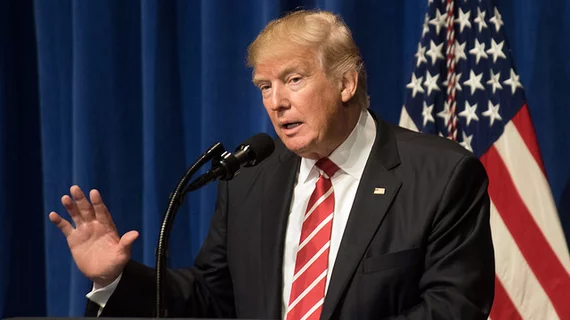Why Trump’s proposed healthcare cuts may go nowhere
President Donald Trump is looking to a rarely-utilized process called “rescission” to cut $15 billion in federal spending he already signed into law earlier this year—with much of the reductions coming from programs like the Centers for Medicare and Medicaid Innovation (CMMI) and the Children’s Health Insurance Program (CHIP).
The cuts would come from the $1.3 trillion omnibus spending bill approved by Congress and signed into law by Trump in March. After outcry from conservative groups about the inclusion of many Democrats’ budget requests, the White House began working on what spending could be clawed back under this “rescission” process. It will require only a simple majority in both the House and Senate, but this would be the largest amount ever rescinded and the first time the process has been used in almost 20 years, according to the Washington Post.
Reductions would largely come from $7 billion in two CHIP accounts: $5 billion in previously authorized funding that went unused and another $2 billion in a contingency fund states could tap into for reimbursement when enrollment is higher than expected. Another $800 million in cuts would impact CMMI.
Trump and conservatives in Congress appeared eager to cut even more from the omnibus spending bill, with the White House saying this is “one of several upcoming rescissions packages.”
“After that last spending bill, we owe an apology to drunken sailors,” Rep. Mark Walker, R-North Carolina, said to the Post.
Whether Republicans in Congress will unanimously back the proposal is unclear. Sen. Susan Collins, R-Maine, said the CHIP cut “concerns me greatly.” Senate Majority Leader Mitch McConnell, R-Kentucky, has privately appeared reluctant to go back on bipartisan deals made to pass the budget earlier this year.
“We are in discussions with the majority leader,” a Trump administration official said on a phone call with congressional staff, according to Politico. “We’re hopeful the Senate’s going to come our way but I would say it’s an ongoing conversation right now.”
Shoring up Republican support would be crucial as Democrats quickly criticized the cuts. Senate Minority Leader Chuck Schumer said in a statement the proposal would “tear apart” CHIP in an effort “to appease the most conservative special interests and feel better about blowing up the deficit to give the wealthiest few and biggest corporations huge tax breaks.”

